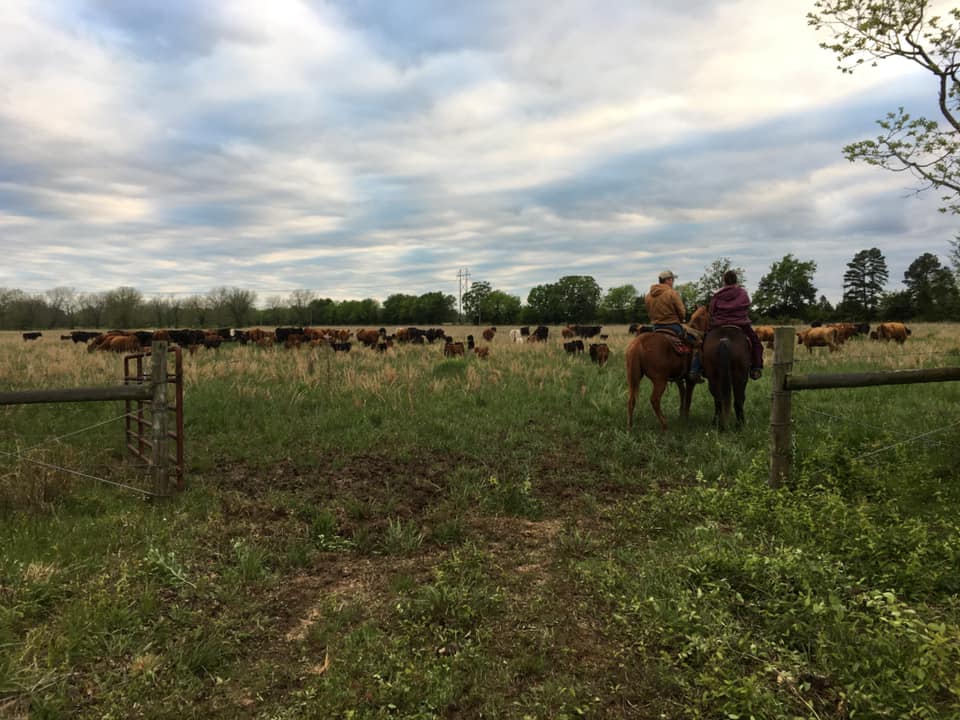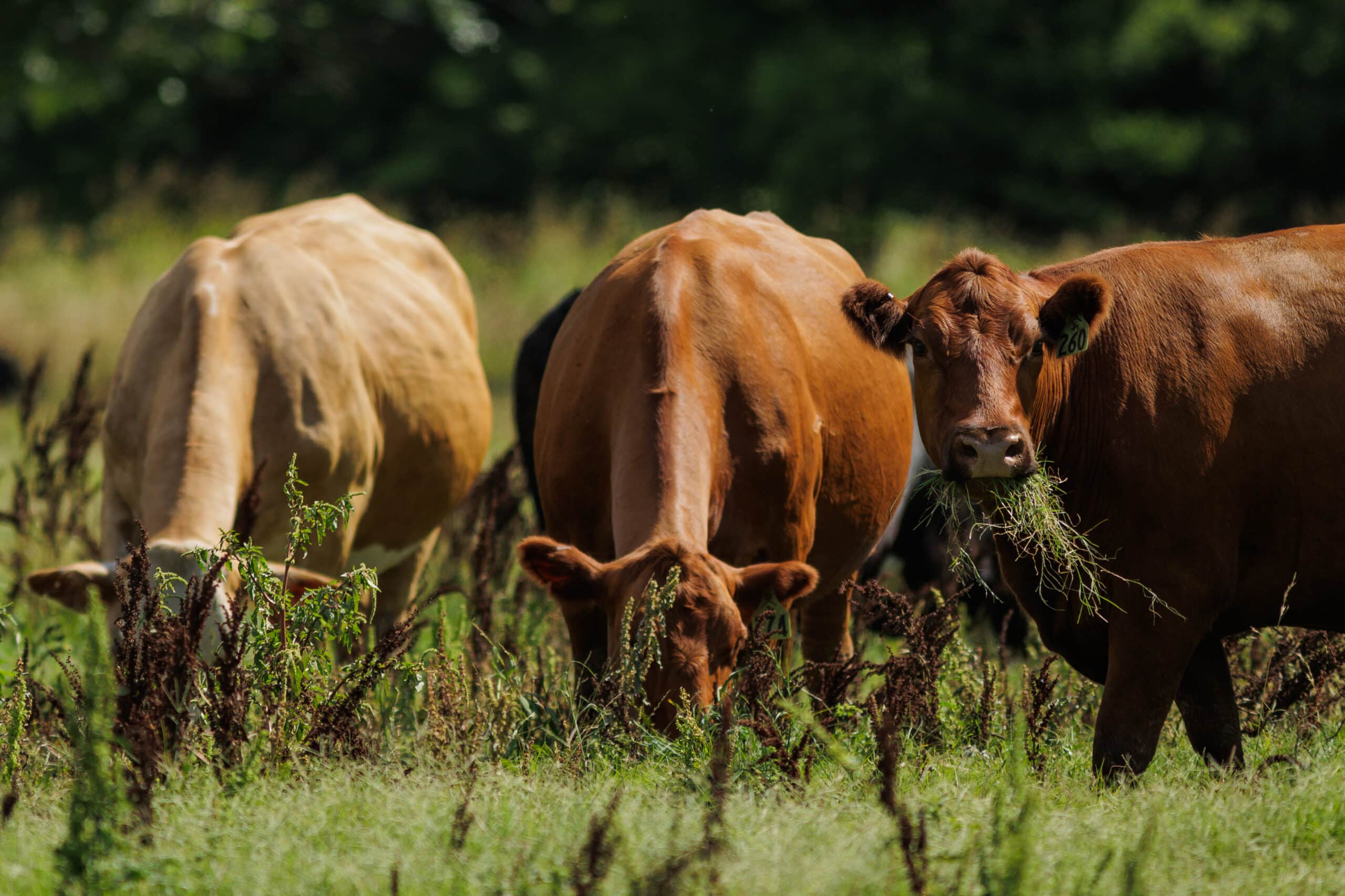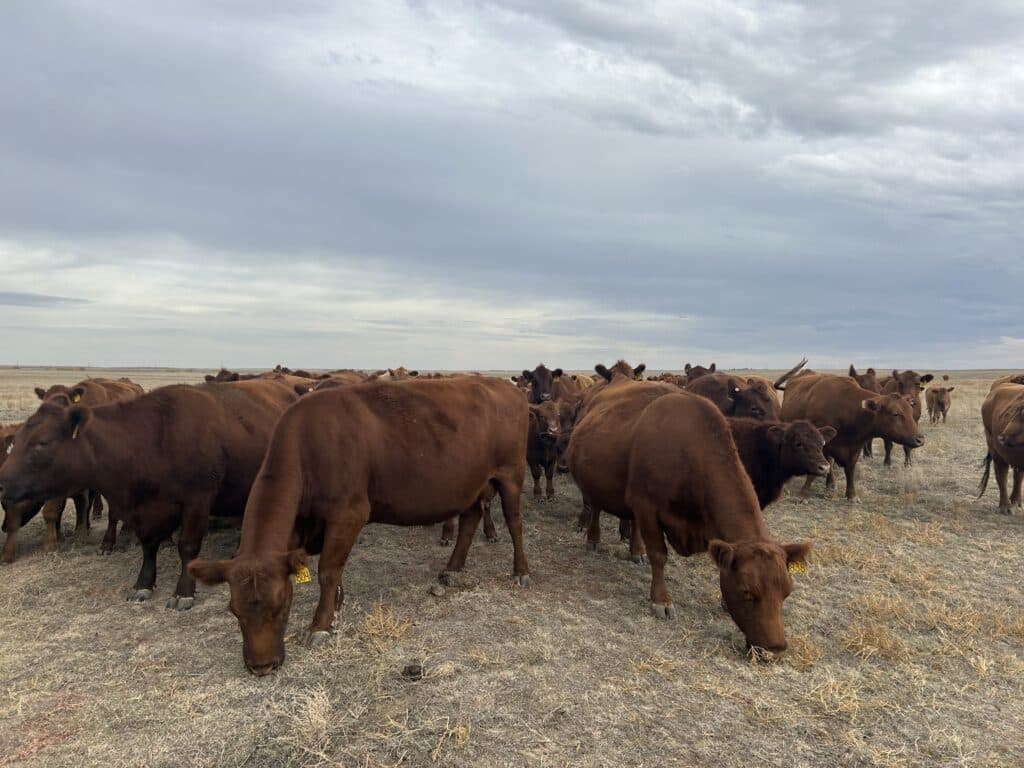What do Climate-Smart Commodities grants mean for ranchers?

As of April 2023, the USDA has initiated the first phase of projects for the Partnerships for Climate-Smart Commodities effort. The USDA has committed to supporting American farmers, ranchers and landowners through these partnerships. The goal is to reduce agriculture’s environmental impact while also sustaining an ever-growing population.
A total of $3.1 billion is being invested in 100+ projects over the next five years. These aim to provide technical and financial assistance to agricultural producers; pilot means for quantifying, monitoring, and reporting greenhouse gas emissions; and assisting in promoting climate-smart commodities.
So, what are these Partnerships for Climate-Smart Commodities grants and why do they exist?
The USDA Partnerships for Climate Smart Commodities program was built to accelerate the development and marketing of climate-smart agriculture commodities in response to growing evidence of the negative impacts of climate change and increasing consumer demand for sustainable products. Financed through the Commodity Credit Corporation (CCC), the intent is to support farmers, ranchers and landowners with financial and technical assistance to scale climate-smart practices, enabling the reporting of greenhouse gas reductions from key interventions implemented through these projects.
The practices being implemented within these programs can differ depending on one’s operational make up. For crop farmers, the implementation of a no-till strategy or planting cover crops during the winter months is an example. For livestock operations, programs are incentivizing the addition of rotational grazing strategies to track its effects on greenhouse gas emissions.
What projects will be available to livestock producers?
AgriWebb is partnering with two organizations that have received, or will be receiving, funding from the USDA. The first our partnerships is with The American Farmland Trust. The non-profit is dedicated to promoting environmentally sound farming practices and keeping farmers on the land. The second is Trust In Food, the sustainability division of Farm Journal, a company providing business information. Both or these organizations are aimed at improving the climate footprint of the US beef supply chain and scaling regenerative agriculture practices.
The American Farm Trust and its consortium of partners will use the grant (find more information here) to fund outreach programs and training for farmers and ranchers in eight states throughout the Mid-Atlantic, Southeast and Southern Great Plains. It aims to promote sustainable and climate smart grazing practices, improve ease of data collection, increase understanding of carbon sequestration and ecosystem service markets, and improve the value of cattle marketed as climate smart beef.
I’m really excited about this upcoming project and collaborating with all the great partners involved to address some real challenges and opportunities facing the beef industry. This project will engage beef producers from all walks of life and create lasting impacts for both beef producers and consumers for generations to come.
Producers participating in Trust in Food’s program will receive data management solutions to track their practices and improve farm efficiency. Eligible participants will receive financial payment and personalized and technical support.
To educate grazing producers about other programs becoming available, AgriWebb hosted a webinar: An Introduction to USDA’s Partnerships for Climate Smart Commodities Grants. Representatives from four organizations heading up grants projects, American Farmland Trust, Growing Grass, AgSpire and Tyson, joined the conversation, sharing what their program was and who could be involved, how ranchers benefit, what is involved within the grant and how ranchers can get involved.
What role will AgriWebb play?
A crucial component to the success of each of these grant programs is digital farm and ranch-level data. Participating farmers and ranchers will be required to regularly provide their farm records to the project partners, most quarterly. To streamline that process, AgriWebb’s livestock management software will support producers when sharing project updates. Whether it’s livestock numbers, animal movements, or climate-smart practices implemented, producers can do it with ease.
Ranchers looking to get involved in either the American Farmland Trust and Trust in Food grants will receive AgriWebb’s livestock management software for free throughout the run of the project. Producers will not only be able to track their data, but visualize the benefits from implementing climate-smart practices.
So, what are the benefits farmers and ranchers can expect from participating in these programs?
Through these funded programs, producers can improve the efficiency, soil health, and resilience to climate change on their operations. They may even see economic gains. Better grazing and feeding strategies can reduce greenhouse gas emissions from ruminant livestock, and improve soil health and drought resilience. Importantly, these improvements lead to heightened pasture productivity and feed efficiency, resulting in a premium, lower-carbon beef product.
For ranchers growing fodder themselves, improvement of the soils through reduced tillage, introduced crop rotations, and the planting of cover crops can save time and money. These are just some of the examples that the USDA are pushing to promote in this new era.
Participating in these programs will tailor an environmentally friendly strategy to suit an individual’s farm. Expert advice, virtual helpdesks, and on-farm data management tools will guide farmers into the digital revolution in agriculture.
How can producers get involved with USDA Climate Smart Commodities grants?
Many projects will be reaching out to farmers and ranchers soon, if they haven’t done so already. There is a list of lead partners on the USDA website. If interested, keep an eye out for local community-engaged, rancher-facing organizations that are partnered on the projects.
This is why Nicole Buckley Biggs, Vice President of Sustainability at AgriWebb, thinks producers should consider getting involved:

The USDA is providing an unprecedented level of funding for producers to adopt climate-smart practices, which can improve the productivity and profitability of your ranch. It’s an alternative option for those who may be hesitant to sign long-term carbon offset contracts, but still want to try new practices to improve their businesses and help the industry progress toward compensation for improved land and animal stewardship.
If you decide to participate, be sure to review the contract terms closely. Be sure to look at what commitments are required, how data is, and what compensation opportunities are included.
If you’d like to receive updates and learn more, please email us at sustainability@agriwebb.com.
References
- American Farmland Trust (2022) https://farmland.org/american-farmland-trust-leads-group-in-effort-to-transition-u-s-beef-supply-to-carbon-neutral/ Accessed 11th July 2023
- Farm Journal (2022) https://www.farmjournal.com/farm-journals-trust-in-food-awarded-usda-partnerships-for-climate-smart-commodities-project/ Accessed 11th July 2023
- USDA (2023) https://www.usda.gov/climate-solutions/climate-smart-commodities/faqs Accessed 11th July 2023
- USDA (2023) https://www.usda.gov/climate-solutions/climate-smart-commodities Accessed 11th July 2023


